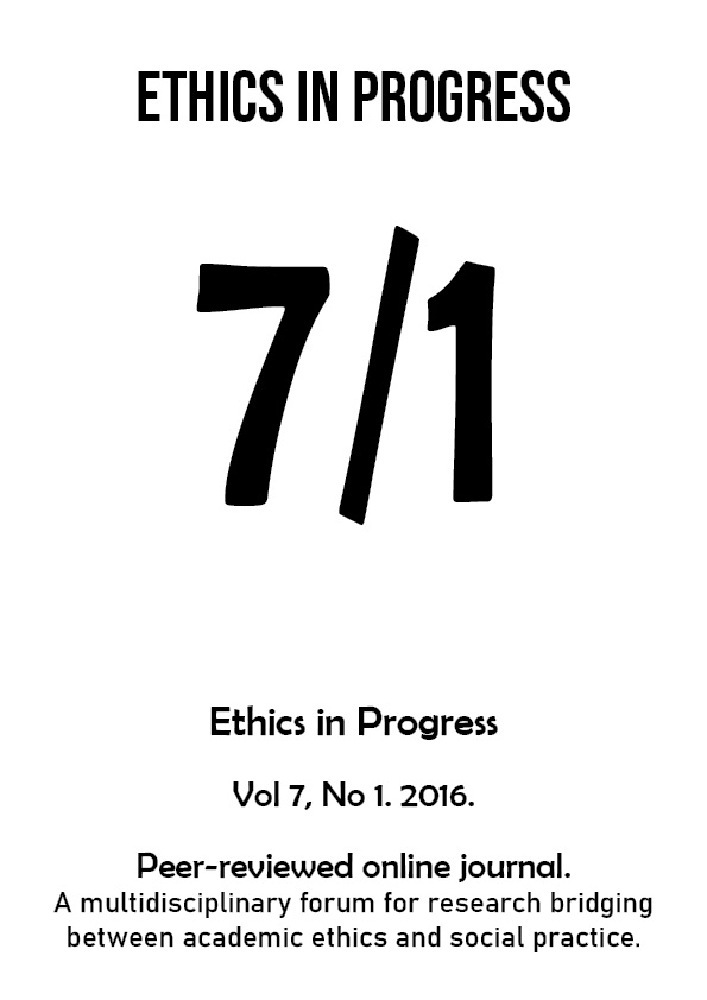Abstract
An argument is made that to further develop the field of environmental virtue ethics it must be connected with an account of environmental sentiments. Openness as both an environmental sentiment and virtue is presented. This sentiment is shown to be reflected in the work of Barbara McClintock. As a virtue it is shown to a mean between arrogance and the disvaluing of individuals, a disposition to be open to the natural world and the values found there. Further development of EVE is then shown to require a connection with an account of environmental wisdom.
References
Aristotle. 1962. Nicomachean Ethics. Trans. M. Oswald. Indianapolis: Library of Liberal Arts.
Bowles, S. 2008. “Policies Designed for Self-Interested Citizens May Undermine ‘The Moral Sentiments.” Science, Vol. 320(5883): 1605–1609.
Cafaro, Ph. 2005. “Gluttony, Arrogance, Greed, and Apathy.” In Sandler, R. & Ph. Cafaro (eds.) Environmental Virtues Ethics (pp. 135–158). Lanham, MD: Rowman & Littlefield.
Cafaro, Ph. 2010. “Patriotism as an Environmental Ethic.” Journal of Agricultural and Environmental Ethics, Vol. 23(1-2): 185–206.
Callicott, J. B. 1990. “The Case against Moral Pluralism.” Environmental Ethics, Vol. 12:99–124.
Callicott, J. B. 2013. Thinking Like a Planet: The Land Ethic and the Earth Ethic. Oxford: Oxford University Press.
Colins, D. & J. Barkdull. 1995. “Capitalism, Environmentalism, and Mediating Structures.” Environmental Ethics, Vol. 27: 227–244.
Fieser, J. 1993. “Callicott and the Metaphysical Basis of Ecocentric Morality.” Environmental Ethics, Vol. 15:171–180.
Frasz, G. 2004. “Is Environmental Ethics ‘Mere’ Extensionism?” Akademia.edu. URL: https://www.academia.edu/787589/Is_Environmental_Virtue_Ethics_Mere_Extensionism (retrieved on 15.07.2016).
Frasz, G. 2005. “Benevolence as an Environmental Virtue” In Sandler, R., Ph. Cafaro (eds.) Environmental Virtues Ethics (pp. 121–134). Lanham, MD: Rowman & Littlefield.
Frasz, G. 2011. “Wise EVE: A Green Account of Wisdom and Its Connection to Environmental Virtues.” Akademia.edu. URL: https://www.academia.edu/787550/WISE_EVE_A_GREEN_ACCOUNT_OF_WISDOM_AND_IT_S_CONNECTION_TO_ENVIRONMENTAL_VIRTUES (retrieved on 15.07.2016).
French, P. A., T. E. Uehling, & H. K. Wettstein. 1988. Ethical Theory: Character and Virtue. Notre Dame, IN: University of Notre Dame Press.
Liszka, J. 1998. Moral Competence. Upper Saddle River, NJ: Prentice Hall.
McDaniel, J. 1986. “Christian Spirituality as Openness to Fellow Creatures.” Environmental Ethics, Vol. 9: 37–46.
Nussbaum, M. 1988. “Non-Relative Virtues: An Aristotelian Approach.” Midwest studies in philosophy, Vol. 13(1): 32–53.
Partridge, E. 1996. “Ecological Morality and Nonmoral Sentiments.” Environmental Ethics, Vol. 18: 149–163.
Rawls, J. 1971. A Theory of Justice. New York: Random House.
Rolston, III, H. “Lake Solitude: The Individual in Wildness.” In H. Rolston, III Philosophy Gone Wild. Buffalo, NY: Prometheus Books.
Sandler, R. L. 2007. Character and Environmental: A Virtue-Oriented Approach to Environmental Ethics. New York: Columbia University Press.
Steverson, B. 2003. “Evolutionary Emotivism and the Land Ethic.” Social Philosophy Today, Vol. 19: 65–77.




